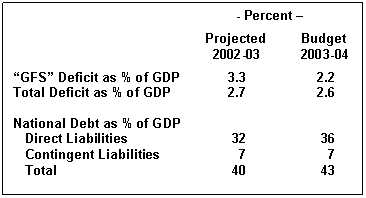Over the past month or so Government fiscal policy has gone from a largely ignored but informed discussion of credit and capital controls appearing in the Letters to the Editor columns of the daily newspapers to the front page lead article. Fiscal balance, government pay raises and International Monetary Fund guidelines suddenly dominate Parliamentary debate and labour/management relations. It is a major policy flap that merits serious discussion.
The William C Allen – Richard Coulson Exchange
In late April there was an exchange of letters in the media between Sir William C Allen and Mr. Richard Coulson regarding the credit and capital controls of the Central Bank.

Mr. Coulson and others criticized "the cap as a restraint on economic growth". Sir William, the former Minister of Finance, stated the logic of and the need for these controls in maintaining the parity of the Bahamian dollar with the U.S. dollar. "The balance of payments is clearly under pressure" and the maintenance of parity comes before "growth, high employment and rising incomes".
Sir William recognized that foreign investment is "the only sustainable economic growth stimulus"; but any outflow of Bahamian dollar savings was a national danger. He noted the strong desire of the portfolio managers of the National Insurance and other pension funds to reduce their portfolio risks by investing in foreign assets; but such diversification would dangerously reduce the Central Bank?s foreign exchange reserves. Prime Minister Perry G. Christie stated in Parliament that "further capital liberalization" could not be justified. (See Google: bahamas.gov.bs, "About the Bahamas", "2003-2004 Budget Communication" of the Hon. Perry G. Christie, page 44.)
Mr. Coulson argued for "more imaginative economic guidance than simply defending the stale status quo of exchange control."
The Budget Debate
The truth of the matter is that the fiscal deficit and the national debt have recently soared like never before. This is readily apparent in the graph of national debt outstanding. In 1966 the national debt was a miniscule $44,400, virtually non-existent. It increased steadily by the mid 1980s to $600 million level and then accelerated to $2.2 billion in 2002-03 and the Prime Minister expects it to reach $2.4 Billion in 2003-04.
National debt is now a big issue. Prime Minister Perry Christie cited critical International Monetary Fund ratios in his Budget Communication; and The Tribune quoted the PM as saying that a GFS deficit of 3.3 percent of the Gross Domestic Product is "dangerous" and it "should not go above 2.2 percent" and total National Debt is approaching the 40% barrier.

Referring to the Table, the improvement in the first ratio, "GFS" Deficit as % of GDP, that is shown in the Communication is misleading since the improvement in the "Total Deficit" ratio, the one that includes Debt Redemption, is not shown and is much less favourable. In addition, Total Debt including contingent liabilities clearly has gone through the 40% barrier.
Whether the budget is fiscally prudent is, of course, a matter of opinion. Revenues are projected as increasing 3.4% while expenditures go up 1.5%; and the Government?s continent liabilities can easily become its Direct Liabilities.
The Prime Minister states that unless we are able to "manage efficiently and have the political will, we have a problem".
This raises valid questions…

